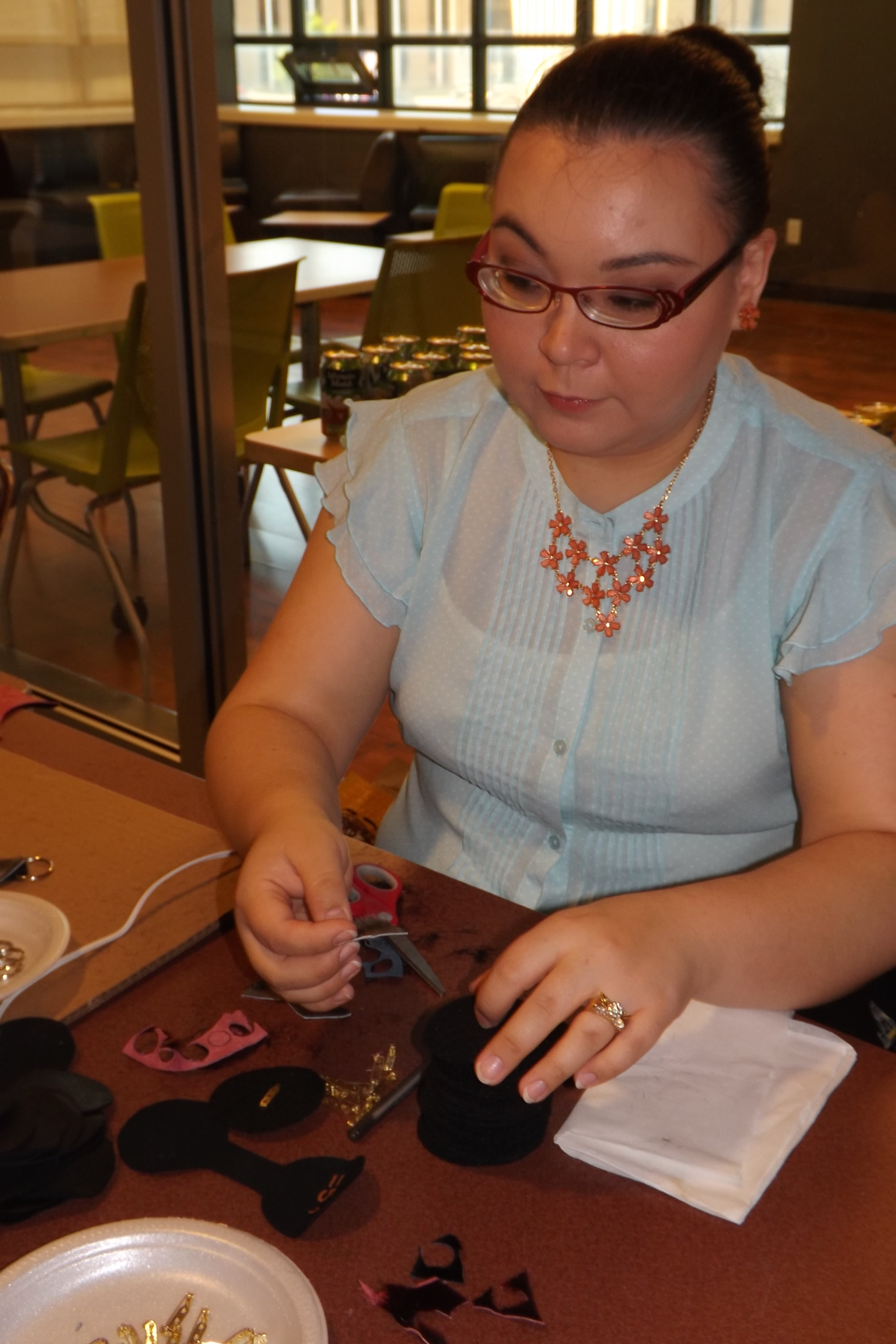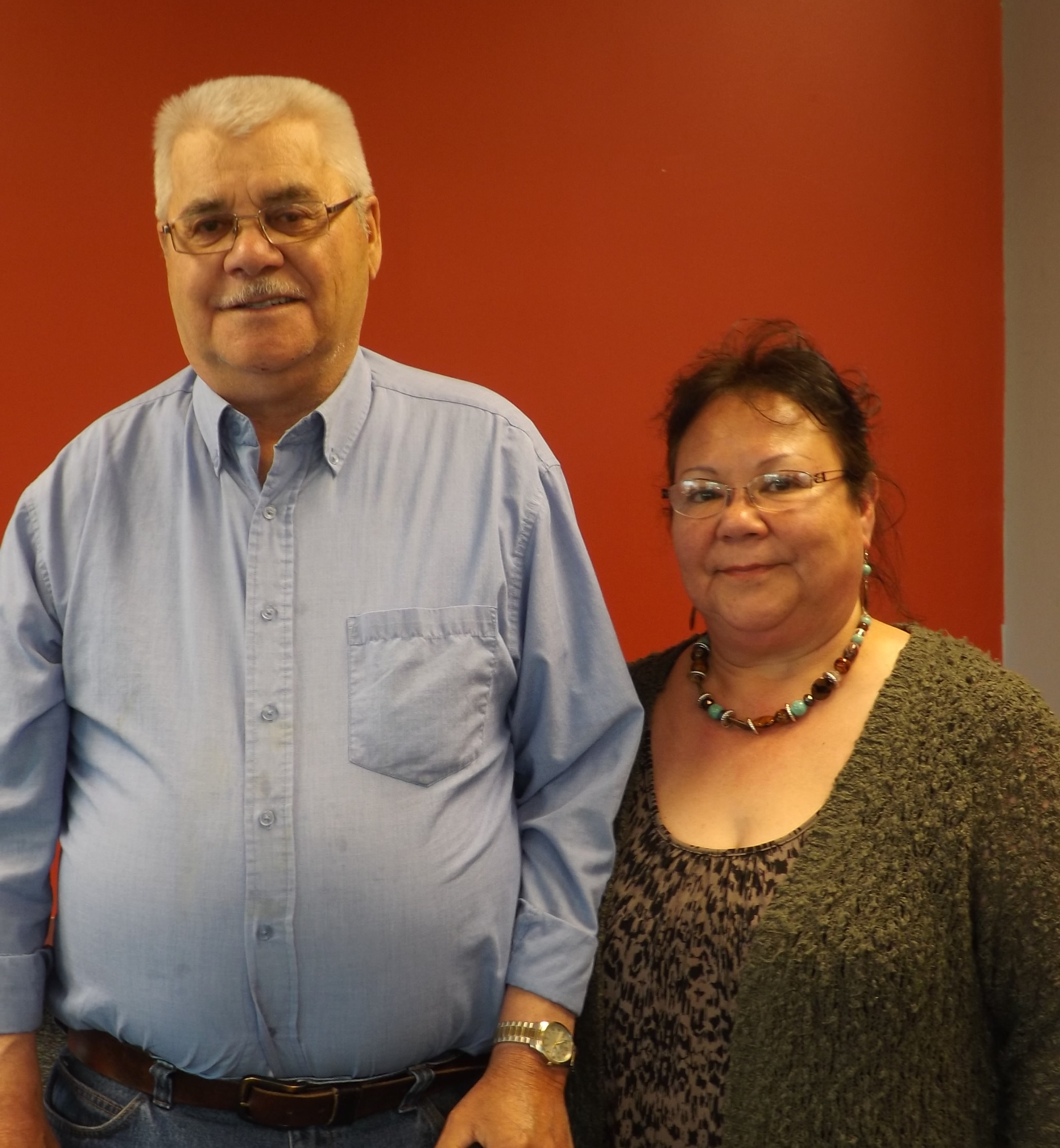Celebrating culture, sharing dark history
Faculty, staff and students gathered in the University Centre on Memorial’s St. John’s campu s on Friday, June 19, to mark National Aboriginal Day, a special day to celebrate the unique heritage, diverse cultures and outstanding achievements of Aboriginal Peoples in Canada.
s on Friday, June 19, to mark National Aboriginal Day, a special day to celebrate the unique heritage, diverse cultures and outstanding achievements of Aboriginal Peoples in Canada.
The official day happens nationally on June 21 — summer solstice, which this year fell on a Sunday. The day was chosen by the Government of Canada in co-operation with Aboriginal organizations because of its significance to many Aboriginal communities as the longest day of the year.
Events at Memorial this year were planned and led by staff and student volunteers of the Aboriginal Resource Office. Participants enjoyed a brunch of moose sausage and toutons, and had the opportunity to make traditional sealskin crafts. Later in the day, there was an overview and offering of the smudge, a symbolic ritual involving the burning of traditional medicines to rid the body of negative energy, cleansing the mind, body and spirit.
The day’s events concluded with a moving talk by Nora Ford, a residential school survivor from Labrador, and a screening of the film We Were Children, which depicts the history of the residential school system in Canada.
During her talk, Ms. Ford spoke of her experiences as a child in a residential school and noted how critically important it is to share the stories of this “dark spot in Canadian history.”
“What really happened in these institutions needs to be recognized, documented and included in the teachings in and about Aboriginal schooling in Labrador, in Canada’s history books and in all relevant educational facilities and faculties,” she said.
“I have a story to tell,” she continued. “There was a loss of language, culture and a way of life, and also a loss of family values. Because of this, I feel I have to tell people what was done, what I lived through. When I was taken away at the age of six my mother was told by the authorities – the clergy and the doctors at the time – that she should let me go so that I would get a better education, so that I would learn more, see more… so this is what she did. She had no idea what was going on inside those walls.”
Ms. Ford briefly touched on the r ecent release of the Truth and Reconciliation Commission of Canada’s (TRC) summary report, and closed by quoting the following verse from the Bible: “Let us love, not in words or speech, but in truth and action.” This year’s National Aboriginal Day events came on the heels of the report’s release. The significant role of education and post-secondary institutions in reconciliation was highlighted in several recommendations from the report, including a focus on increased access to post-secondary education for Aboriginal youth and the need for courses and programming on Aboriginal issues, culture and language.
ecent release of the Truth and Reconciliation Commission of Canada’s (TRC) summary report, and closed by quoting the following verse from the Bible: “Let us love, not in words or speech, but in truth and action.” This year’s National Aboriginal Day events came on the heels of the report’s release. The significant role of education and post-secondary institutions in reconciliation was highlighted in several recommendations from the report, including a focus on increased access to post-secondary education for Aboriginal youth and the need for courses and programming on Aboriginal issues, culture and language.
Catharyn Andersen, special advisor to the president on Aboriginal affairs, calls the focus on the role of education in in the summary report an opportunity for Memorial to play a pivotal role in facilitating the dialogue of this important aspect of Canadian history. She noted that many of the issues named in the TRC report are also reflected in the recommendations in Memorial’s task force report.
“The TRC report calls for dialogue between and among all Canadians, Aboriginal and non-Aboriginal,” she said. “With our special obligation to the people of Newfoundland and Labrador, and as the only university in the province, I think we have a vital role to play and we are certainly in a position to facilitate that dialogue and much more.”